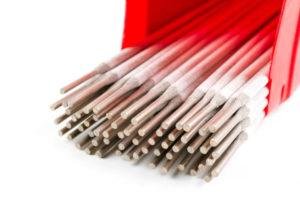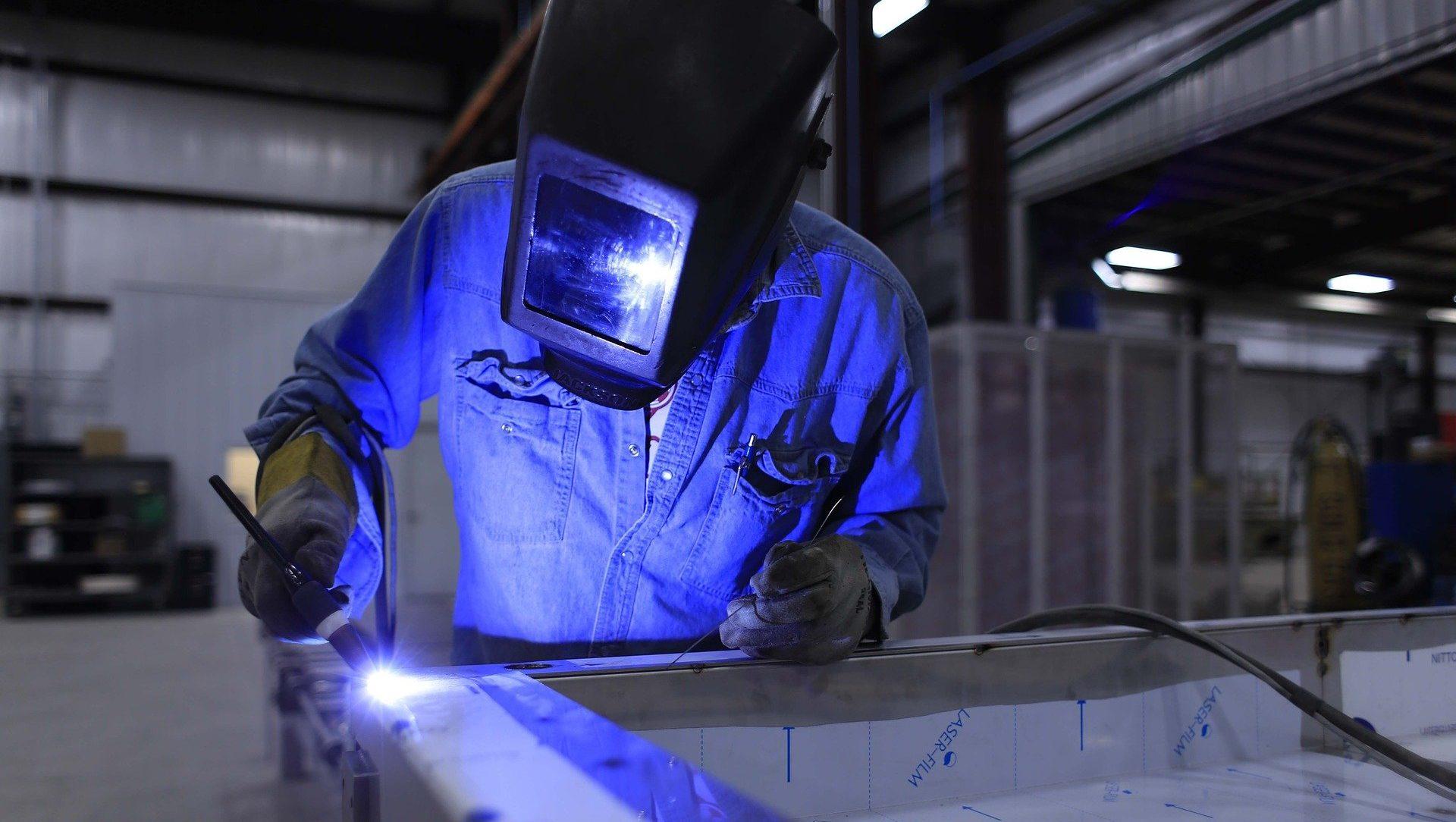No matter whether you are a professional at welding or an enthusiast interested in DIY welding, choosing the right welding electrode is important. It is very true that the selection of welding electrodes often seems to be a challenge. This is because; the perfect selection is based on numerous factors.
If you are interested in improved welding efficiency with the right selection of welding electrodes, this is the guide for you.
So, what are these welding electrodes?
If you look at the welding process, the welder requires an electrode for arc welding. This electrode is the major element that allows generating electric current. This electric current produced is useful in joining the parent metals as they pass through an electrode. Thus, the major purpose of electrodes that are used in welding is creating an electric arc.

In simple terms, the welding electrodes are the lengths of wire that, when connected to the welding machine will produce an electric arc.
Choosing the right welding electrode – Things to consider
- Know about the materials that are to be welded
Of course, in some specific applications, it is difficult to know the exact materials to be welded. Still, having some information on the type of materials involved is important. Right before you begin welding, you should make the effort to have an idea of the base materials.
So, how can you gain an understanding? We recommend doing a sample material test or a spark test. It is also advisable to get support from the original manufacturer or get information from the product guide.
- Check the welding current
It is necessary that you know which power source is going to be used. Is it AC or DC power current? You can’t expect the welding electrode to be compatible with both power sources. Hence, you have to match the welding electrode with the power source with which you are going to use.
Considering the AWS selection can be quite useful here. This makes sure the right type of current for the welding electrode. Typically, the 4th digit will indicate the right one for the current type.
- Pay attention to the chemical properties
When you are going to choose the welding electrode, you should care for its chemical properties also. It is important that you ensure that the chemical properties of the base material match the chemical composition of the electrode. To say in particular, the carbon percentage should have a perfect matching.
- Thickness of the base material
Maximum ductility and low hydrogen welding electrodes are the optimal choices for thick materials. This is because; this avoids cracking in welding. Are you expecting good low–hydrogen properties? Do you target fine toughness for better residual stress? Then go for the selection of electrodes that come under the AWS classification with numbers that end in 15, 16, or 18.
On the other hand, for thin materials, electrodes that generate soft arcs are the ideal choice. When the diameter of the electrode is smaller, it will give shallow penetration, thus reducing the burn-through effects.
- Consider the design requirements of the finished weld
You should develop an understanding of the finished weldment’s service conditions. This helps in figuring out the right filler metal. In cases where the weldment is prone to have high temperatures or stresses it tends to have an effect on the filler metal choice. The lower strength of the filler metal which often seems to have less resistance to corrosion to base materials will leave great impacts on the finished weldment. Ultimately, this will ruin the intended purpose of the welding.
- Tensile strength
It is very common to face issues such as material cracking or discontinuities in the welding processes. If you want to get rid of such issues, then it makes sense to choose the welding electrode that has similar tensile strength. Are you ready to begin welding? Then pause here. Ensure the tensile strength is similar. This makes you free from any welding errors.
So, how do you ensure the tensile strength? Look at the first two digits of the tensile strength. This will help to get to know the information of the tensile strength. Based on this, you can choose the base material or vice versa.
Apart from the above key considerations, there are other elements such as service conditions of the electrode, welding position, and environmental job conditions that have their important roles in determining the right welding electrode. Before you power up the welding machine for the purpose, ensure you have the right selection for efficient output.







Your point of view caught my eye and was very interesting. Thanks. I have a question for you.
Thanks for sharing. I read many of your blog posts, cool, your blog is very good.
Your point of view caught my eye and was very interesting. Thanks. I have a question for you.
Thank you for your sharing. I am worried that I lack creative ideas. It is your article that makes me full of hope. Thank you. But, I have a question, can you help me? https://accounts.binance.info/en-IN/register-person?ref=UM6SMJM3
Can you be more specific about the content of your article? After reading it, I still have some doubts. Hope you can help me. https://www.binance.info/ph/register?ref=B4EPR6J0
Thanks for sharing. I read many of your blog posts, cool, your blog is very good.
Your point of view caught my eye and was very interesting. Thanks. I have a question for you. https://www.binance.info/bn/register?ref=UM6SMJM3
Can you be more specific about the content of your article? After reading it, I still have some doubts. Hope you can help me.
Your point of view caught my eye and was very interesting. Thanks. I have a question for you. Krypto-Mining bei gate io
Can you be more specific about the content of your article? After reading it, I still have some doubts. Hope you can help me.
Your article helped me a lot, is there any more related content? Thanks!
Your point of view caught my eye and was very interesting. Thanks. I have a question for you.
I don’t think the title of your article matches the content lol. Just kidding, mainly because I had some doubts after reading the article.
Thanks for sharing. I read many of your blog posts, cool, your blog is very good.
Your article helped me a lot, is there any more related content? Thanks!
Shop the best foaming face wash for men and women at Cosworld. Our collection includes natural face wash options that cleanse, refresh, and rejuvenate your skin. Shop now for the best prices in India.
I don’t think the title of your article matches the content lol. Just kidding, mainly because I had some doubts after reading the article.
Your article helped me a lot, is there any more related content? Thanks! https://www.binance.info/ru/register?ref=O9XES6KU
Can you be more specific about the content of your article? After reading it, I still have some doubts. Hope you can help me. https://accounts.binance.info/da-DK/register?ref=V3MG69RO
Your article helped me a lot, is there any more related content? Thanks! https://accounts.binance.com/register-person?ref=IXBIAFVY
Thanks for sharing. I read many of your blog posts, cool, your blog is very good.
Thanks for sharing. I read many of your blog posts, cool, your blog is very good.
Shop latest imitation, artificial & fashion jewellery online at Ashnera. Explore earrings, bangles, necklaces & more in stylish designs at best prices.